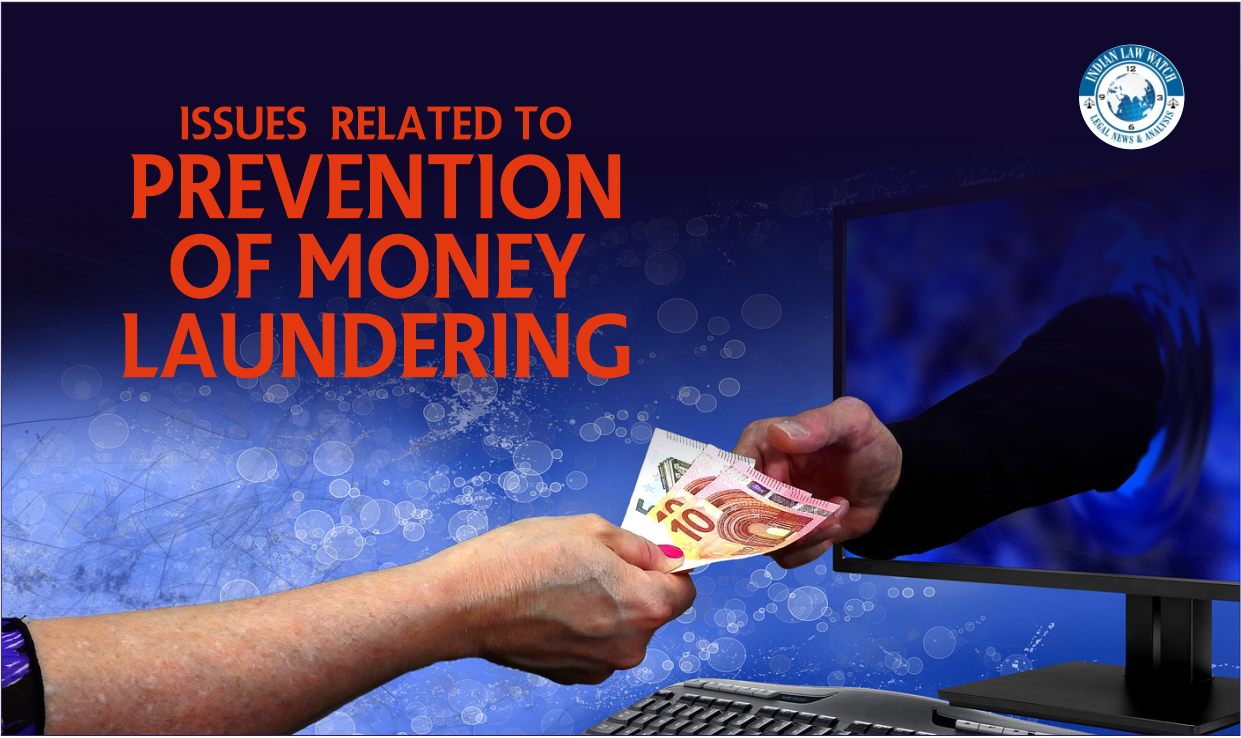

The top court has clarified that would be addressing issues only related to PMLA on certain parameters
The Supreme Court on Wednesday listed for November 22, 2023, to hear a review petition challenging the top court’s judgement upholding various provisions of the Prevention of Money Laundering Act (PMLA).
A bench of justices Sanjay Kishan Kaul, Sanjiv Khanna and Bela M Trivedi said that it will give one-half session to each party.


The top court has clarified that would be addressing issues only related to PMLA on certain parameters.
The court also noted the objection raised by Solicitor General Tushar Mehta that an academic exercise should not be carried out. The court also noted that the petitioner has also accepted that they seek reconsideration of judgment on certain parameters.
The court was hearing on review petition challenging of top court’s judgement upholding the provision of PMLA.
Solicitor General Tushar Mehta opposed the reevaluation of judgement and said the PMLA is not a standalone offence and PMLA is prepared by the legislature in conformity with the directions issued by the Financial Action Task Force (FATF).
SG Tushar Mehta said that FATF conducts mutual evaluation and 7 members of 7 different countries come to India and examine if our law is in tune with the standards. SG urged the bench to await the mutual evaluation by FATF.
SC noted the last order on the review petition said that at least two aspects had to be reconsidered. Senior Advocate Kapil Sibal, appearing for the petitioner said that PMLA is not a penal statute. Senior Advocate Sibal when someone is summoned under PMLA, one doesn’t know whether he is summoned as a witness or accused.
Justice Khanna remarked that the justification in the judgment is that the same is true for Customs Act, Excise Act and Income Tax Act. Sibal said that they are not penal statutes. Senior Advocate Sibal said that there is no supply of ECIR. Sibal said that they are the twin conditions for bail.
Justice Trivedi remarked that according to Sibal, all these issues have been wrongly considered.

-
Last Year the top court agreed to reconsider the review petition as it said that prima facie two issues relating to provisions of the Prevention of Money Laundering Act need to be reconsidered.
-
Those two issues that the Supreme Court prima facie finds to reconsider are the judgments upholding various provisions of the Prevention of Money Laundering Act.
-
During the last hearing, the court also noted that there are some issues that need a ‘re-look’ but it said that the bench is completely in support of the prevention of black money or money laundering.
-
The court had also said that the offence of money laundering is serious and the country cannot afford such an offence.
-
The court had earlier agreed to hear in open court, hearing on the review petition against the judgement pertaining to upholding various provisions of the Prevention of Money Laundering Act.
-
The review plea was filed by Congress MP Karti Chidambaram.
-
On July 27, 2022, the Supreme Court upheld the validity of various provisions of the Prevention of Money Laundering Act (PMLA) which empowers ED to make arrests, conduct search and seizures and attach proceeds of crime.
-
The court had also held that the Enforcement Case Information Report (ECIR) cannot be equated with the First Information Report (FIR) and ED officers are not police officers.
-
The court was hearing various pleas challenging the various provisions of the Prevention of Money Laundering Act (PMLA) on Wednesday.
-
On March 15 2022 the top court had reserved its order on a batch of petitions challenging certain provisions of the Prevention of Money Laundering Act (PMLA). Prominent names like Karti Chidambaram and former Jammu and Kashmir Chief Minister Mehbooba Mufti were among the petitioners in the case.
-
Their petitions raised multiple issues including the absence of a procedure to commence investigation and summoning, while the accused was not made aware of the contents of the Enforcement Case Information Report (ECIR).
-
Section 45 deals with offences to be cognizable and non-bailable.
-
Section 50 of the PMLA empowers the ‘authority’ i.e. officers of the Enforcement Directorate, to summon any person to give evidence or produce records. All persons summoned are bound to answer questions put to them and to produce the documents as required by the ED officers, failing which they can be penalised under the PMLA.
-
However, the Centre had justified the constitutional validity of the provisions of PMLA.
-
Centre has apprised the court that around 4,700 cases are being investigated by the Directorate of Enforcement.
-
Centre said that PMLA is not a conventional penal statute but is a statute that is aimed at necessarily preventing money laundering, regulating certain activities relatable to money laundering, confiscating the “proceeds of crime” and the property derived therefrom and also requires offenders to be punished by the competent court after filing of a complaint.
-
Centre submitted that India, and its version of the Prevention of Money Laundering Act, 2002, is merely a cog in this international vehicle. Centre submitted that India, as a signatory to the treaties and an important participant in the international process and the fight against money laundering, is bound legally and morally, to adopt the global best practices and respond to the changing needs of the times.
Source: Business Standard





